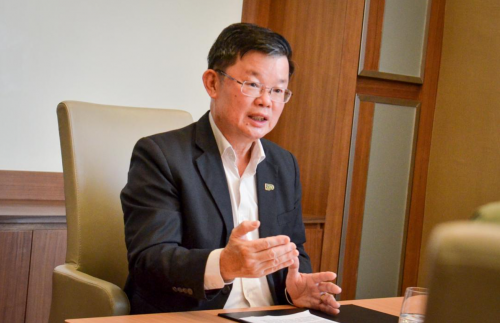KUALA LUMPUR – An education expert has warned that the worrying number of dropouts from the last Sijil Pelajaran Malaysia (SPM) examinations, involving a total of 75,455 candidates, may become a trend every year if the problem is not addressed effectively.
Prof Abdul Rasid Jamian, director of the Centre for Pedagogical Research and Innovation, stressed that such repeated results, no matter how poor they are, can lead to society becoming habituated to them, and, worse still, become an accepted part of our national culture.
He said that the two years of remote studying at home due to the restricted movements and lockdowns brought about by the Covid-19 pandemic have resulted in students wallowing in their “comfort zone” as they were not required to physically attend school.
“There was no disciplinary guidance from the school management as well as the parents,” he said in an interview with Getaran, The Vibes’ Bahasa Malaysia sister publication.
He pointed to cases where SPM candidates spent their time working as food delivery riders during the remote teaching and learning phase, as the activity offered them good financial rewards.
“Some were influenced by friends to work as GrabFood and FoodPanda riders during the pandemic as they felt at ease having their own pocket money,” he said.
They questioned why they needed to sit for SPM if they could easily gain almost RM2,000 monthly. Some even earned more than their friends who are diploma and degree holders.”
“Besides, if they worked harder, they could even earn more,” he added.
Rasid expressed concern that this mindset will become normalised.
More students will feel that they can still make a living even if they drop out from their SPM exams, and this would have a long-term impact on the nation, he warned.
“I am concerned about the nation’s future, as our people might become uneducated.
“Knowledge is essential in upholding the nation’s identity.
“The impact of this worrying trend will be seen in five or six years to come. This is very alarming,” he said.

Thus, Rasid urged the Education Ministry (MoE) to examine and review the various aspects related to this malaise immediately.
“The ministry should look into the needs of the youth or students nowadays,” he said.
At the same time, Rasid welcomed the government’s move in abolishing the Primary School Achievement Test (UPSR) and Form Three Assessment Examination (PT3).
He is of the opinion that such a measure will allow students to undertake learning holistically.
“Let the ministry continue implementing SPM for students to determine if they want to proceed to enter the working world or to continue pursuing their education.
“That’s where they come to a crossroads, where they will move on from their schooling to a higher level.”
Make secondary school education mandatory
Meanwhile, Universiti Kebangsaan Malaysia lecturer Anuar Ahmad recommended reviewing Article 29A of the Education Act 1996 to extend compulsory education for children in Malaysia from the current Year 1 to 6, to make it mandatory all the way to Form 5 as well.
He said it can protect the children’s right to receive the necessary education at the secondary school level, which is important for their future.
“So far, there is no act or law that protects children to make them continue receiving their education at secondary school.
“Under Article 29A of the Education Act, only the first six years of primary schooling are compulsory for children,” he noted.
He stressed the problem of dropouts is not only due to the failure of the education system but is also brought about by a lack of awareness among parents regarding the importance of education.
“This is why the amendment to Article 29A of the Education Act 1996, to make 11 years of schooling compulsory, must be done to save the future of our children,” he added.

Anuar, at the same time, questioned education leaders today over initiatives taken to curb the dropout rate that has reached a staggering level.
If in 1972, the Murad Report had managed to curb the dropout issue due to poverty, how is the current education leadership going to solve this problem amid the relative poverty situation today?
“I still have not seen any convincing measures proposed in curbing this issue, and we are still waiting for a real solution,” Anuar added.
Previously, MoE had revealed that some 70,455 SPM candidates had become dropouts, which means that they could not further their studies.
Of this number, 24,941, or 6.2%, of the candidates had registered but did not sit for the SPM examination, and 1,655 candidates recorded an F (fail) grade.
The other 45,514 or 11.91% of the candidates did not qualify to receive the SPM certificate because they did not pass the Bahasa Malaysia or History subjects. – The Vibes, August 8, 2022






















